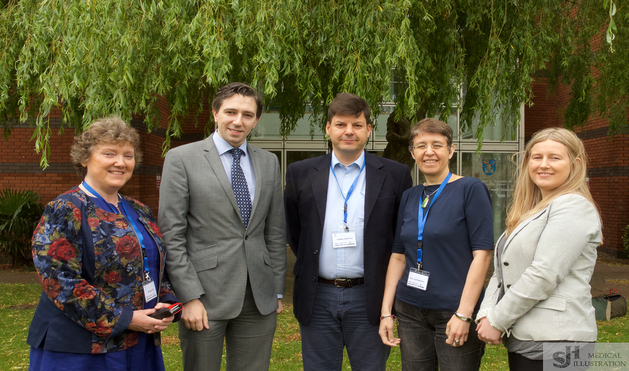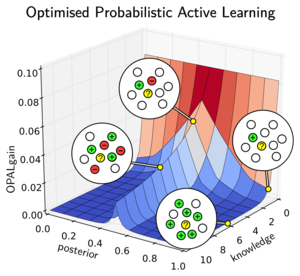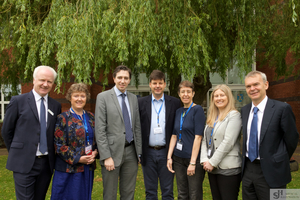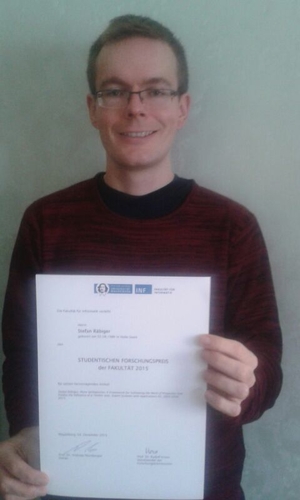News
IEEE ICDM 2017 - Medical Mining Tutorial
IEEE ICDM 2017, New Orleans - Tutorial on Mining Cohorts and Patient Data, Monday November 20, 10:30 - 13:00 (NEW DATE)
FIN-Forschungspreis 2015
Dr. Georg Krempl and Daniel Kottke have been awarded with the "FIN-Forschungspreis 2015". This year, the best publication of the faculty has been chosen to be "Optimised probabilistic active learning (OPAL): For Fast, Non-Myopic, Cost-Sensitive Active Classification." by Georg Krempl, Daniel Kottke, and Vincent Lemaire. It was published in the special issue of the ECMLPKDD 2015 Journal Track in the Journal of Machine Learning.
Exam review information
Organizational information regarding the exam reviews of our lectures can be found under "Study" on the respective lecture webpage.
CBMS 2016 Proceedings are online
Myra Spiliopoulou was PC Chair of the IEEE 2016 Int. Symposium on Computer-Based Medical Systems (CBMS 2016), together with Jaakko Hollmen (Univ. Aalto, Finland). CBMS 2016 took place in Belfast and Dublin, June 20-23, 2016. The proceedings are now online as part of the IEEE XPlore digital library under:
http://ieeexplore.ieee.org/xpl/mostRecentIssue.jsp?punumber=7542713
Two papers at Computer-Based Medical Systems 2016
The KMD Lab presented two papers at Computer-Based Medical Systems 2016, Dublin, Ireland and Belfast, Northern Ireland .
- "Learning Pressure Patterns for Patients with Diabetic Foot Syndrome" by Uli Niemann, Myra Spiliopoulou, Fred Samland, Thorsten Szczepanski, Jens Gruetzner, Antao Ming, Juliane Kellersmann, Jan Malanowski, Silke Klose and Peter R. Mertens
- "Identifying relevant features for a multi-factorial disorder with constraint-based subspace clustering" by Tommy Hielscher, Myra Spiliopoulou, Henry Voelzke and Jens-Peter Kuehn

Tutorial at PAKDD 2016, Auckland, New Zealand
Myra Spiliopoulou gives a tutorial on "Medical Mining" at PAKDD 2016, Auckland, New Zealand, together with Ernestina Menasalvas (Univ. Polytecnica de Madrid) and Pedro Pereira Rodrigues (Univ. Porto) on April 2016.
Studentischer Forschungspreis 2015
Stefan Räbiger is the recipient of the award "Studentischer Forschungspreis 2015" for the paper "A Framework for Validating the Merit of Properties that Predict the Influence of a Twitter User", which was co-written by Prof. Myra Spiliopoulou. It was awarded by the faculty of Computer Science of the Otto-von-Guericke University. The paper is based on his master's thesis which was also supervised by Prof. Spiliopoulou.



